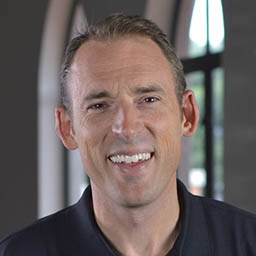1. Introduction – Facing the Issues (continued)
1.3 Questionable Sources
It is my contention that much of the confusion about causes of youth problems stems from the use of doubtful methods. Many today who sincerely long to see youth helped often draw water from polluted wells. Rather than appealing to an authoritative, objective standard and to an absolutely dependable source of truth, most employ the uncertain and inconsistent interpretations of modern psychotherapy. A growing number from within the psychology and psychiatry establishment have been questioning the validity of these pseudosciences (e.g., Vitz, 1994; Szaz, 1997; Ganz, 1993; Bulkley, 1993) Dr. Gary Almy, professor of clinical psychiatry and associate chief of medical staff at a  large hospital, writes: “Psychiatry is riddled with defective communication, sloppy definition, inadequate criteria for labelling symptoms and signs, sub-rational treatment, and an inability to predictably cure or even lessen symptoms…. The diagnoses left to psychiatry (once any definite neurological or medical conditions are identified) such as depression, schizophrenia, passive-aggressive personality, and narcissism fail to fit the definition of true diseases…. Instead of discovering true disease, modern psychiatry continues to invent ever more elaborate lists. The lists are useful in giving names to the customers of psychiatry, but in terms of actual diagnosis and treatment, confusion reigns.” (Almy, 2000: 291-293)
large hospital, writes: “Psychiatry is riddled with defective communication, sloppy definition, inadequate criteria for labelling symptoms and signs, sub-rational treatment, and an inability to predictably cure or even lessen symptoms…. The diagnoses left to psychiatry (once any definite neurological or medical conditions are identified) such as depression, schizophrenia, passive-aggressive personality, and narcissism fail to fit the definition of true diseases…. Instead of discovering true disease, modern psychiatry continues to invent ever more elaborate lists. The lists are useful in giving names to the customers of psychiatry, but in terms of actual diagnosis and treatment, confusion reigns.” (Almy, 2000: 291-293)
Another critic, Dr. Paul Vitz, in his newly updated book, Psychology as Religion: The Cult of Self-Worship, describes modern psychology’s dangerous devotion to self-worship, or “selfism.”. He essentially says, “All the major theories of motivation and personality assume that reward for the self is the only functional ethical principle” (Colson, 2002). Despite major cracks in psychotherapy’s foundation, most youth counselling today, both in the church and outside, continues building upon (or unknowingly adopting) such faulty presuppositions. And such assumptions permeate not only the counsel given to the ‘difficult’ youth, but also the guidance given to the rest. If today’s youth counsellors were asked for a consensus on top causes behind major youth troubles, most of their interpretations would stem from the psychological paradigm. Such a list would usually include: low self-esteem; unmet emotional needs; peer pressure; bad upbringing; lack of education; other environmental factors and external stressors; other biological factors, such as supposed disorders, chemical imbalances, or hereditary problems (van Greunen, 1994:81; Hine, 1999:271; Gillis, 1994:67-179; Collins, 1988:147-196; Meier, et.al., 2000:39-56, 73-146, 163-242, 265-296) .
Notice a common thread woven through each of these supposed causes: the ‘you are a victim’ motif. Though such diagnoses seem caring at first, they actually kill hope by removing responsibility from the counselee. This often leaves them blaming their environment and circumstances for yanking them around like a helpless marionette on a string. Unless certain pressures and people in their life are removed, they are stuck with whatever syndrome, disorder, or phobia label has been tacked on to them. I recall a recent counselling session with a young man who had barely sat down before announcing to me that his psychiatrist says he has a chemical imbalance and his psychologist says he has a low self-esteem. So he said he must either “keep taking these pills” or must find a way to get ‘self-actualized’. Despair was written all over his face, voice, and posture. Many will still remark that there are good reasons to hold on to these common diagnoses: “Hasn’t research shown that these are major determiners in young people’s behaviour?” “Has it not been proven that behaviour can change when these are addressed?” “Just listen to the youth themselves and they will point to these same causes.”
leaves them blaming their environment and circumstances for yanking them around like a helpless marionette on a string. Unless certain pressures and people in their life are removed, they are stuck with whatever syndrome, disorder, or phobia label has been tacked on to them. I recall a recent counselling session with a young man who had barely sat down before announcing to me that his psychiatrist says he has a chemical imbalance and his psychologist says he has a low self-esteem. So he said he must either “keep taking these pills” or must find a way to get ‘self-actualized’. Despair was written all over his face, voice, and posture. Many will still remark that there are good reasons to hold on to these common diagnoses: “Hasn’t research shown that these are major determiners in young people’s behaviour?” “Has it not been proven that behaviour can change when these are addressed?” “Just listen to the youth themselves and they will point to these same causes.”
But we must beware of the logical fallacy of false cause (e.g., ‘All who ate carrots before 1870 are dead today, so don’t eat carrots.’). Prozac may help a teen emotionally, but it does not prove whether the serotonin deficiency was a cause or a result of other problems or attitudes (Smith, 2000:63-76, 95-96, 196). We must also refuse to bow to the contemporary god of pragmatism, especially in light of the dangers of taking that to its logical end (some remote tribes might assure you that cannibalism ‘works’ for them). Nor can our diagnosis be based primarily upon the young person’s own self-interpretation, since they too breathe the same ‘psychologized’ air as the rest of us. What then is our ultimate guide in these crucial matters of helping our hurting youth? To what final standard do we appeal for both an interpretation and a solution that is authoritative and certain, so that the hearts and lives of our youth are truly transformed? How can we give them the keys of hope and wisdom that will open the door into successful living?
2. A Biblical Understanding of the Heart
All of the disappointment and the disagreement over current solutions should drive the youth counsellor back to the critical need for first making a sound interpretation. Until youth workers learn to probe the heart of the matter, the best and most lasting solutions will continue to elude them. Therefore, for the remainder of this article I will argue that only an accurate cardiology will take the counsellor deep enough to offer true help.
 2.1 Our Foundation
2.1 Our Foundation
Our Creator has not left us hopelessly adrift in a sea of relativism and subjectivism, with no raft to rescue drowning youth. The King of the Universe condescended to form us from the dust and make us in His image that we might enjoy a relationship with him (Genesis 1-2). Would he then remain silent and leave us groping in the dark? Never! He has unmistakably spoken to us in the Scriptures. In the Bible we hear His voice and we find His answers for us and for our troubled youth. From the prophets of the Old Testament to Christ and His apostles, the Scriptures are shown to be nothing less than the infallible and authoritative Word of God (Deut. 4:4; Ps. 19:7-11; Matt. 5:18; 2 Pet. 1:20-21). When the Bible speaks, God speaks! As a result, all who rely upon His Word have the insight necessary to truly help today’s youth. The Apostle Paul summarized it best: “All Scripture is God-breathed and useful for teaching, reproof, correction, and training in righteousness; so that the man of God may be adequate, equipped for every good work”(2 Tim. 3:16-17). Here we have an authoritative guidebook that fully equips us for understanding and training youth for right living (Adams, 1979:16-37; Bulkley, 1993:276-278).
How could we ever begin on our own to understand the complex, heart-soul-mind dynamics going on inside any person, even ourselves? And what right do the professionals have to claim some ‘deeper’ knowledge of our inner workings? The Manufacturer of our hearts alone can guide us. Hear His Word: “The heart is deceitful above all things and desperately sick. Who can understand it? I the LORD search the heart, I test the mind”(Jer.17:9-10). “For God is greater than our heart and knows all things” (1 John 3:20). One counsellor aptly states: “Ever since Eve believed the serpent’s lie, mankind has sought a kind of understanding of the human mind that can only be possessed by the Creator of that mind” (Almy, 2000:287). Therefore, only those who know the true and living God and His Word can rightly understand themselves and other people. But conversely, any who do not know the Creator cannot truly understand themselves or other people, no matter how brilliant or educated they may be. Thus wise King Solomon wrote, “The fear of the LORD is the beginning of knowledge…[and] of wisdom,/ And the knowledge of the Holy One is understanding” (Prov. 1:7a; 9:10, italics mine). Insight and skill in living life starts with being rightly related to the Author of life. The Apostle Paul also spoke about the limitations on an unbeliever’s knowledge when he said, “The man without the Spirit does not accept the things that come from the Spirit of God, for they are foolishness to him and he cannot understand them, because they are spiritually discerned. The spiritual man makes judgments about all things…” (1 Cor. 2:14-15a).
is understanding” (Prov. 1:7a; 9:10, italics mine). Insight and skill in living life starts with being rightly related to the Author of life. The Apostle Paul also spoke about the limitations on an unbeliever’s knowledge when he said, “The man without the Spirit does not accept the things that come from the Spirit of God, for they are foolishness to him and he cannot understand them, because they are spiritually discerned. The spiritual man makes judgments about all things…” (1 Cor. 2:14-15a).
Likewise, only those who base their counselling upon His authoritative Word can ever say with true authority what changes a person needs to make in their life. Any other counsellor has no right to exhort that teenager, because such counsel has no authoritative base or standard and is rooted only in subjectivity (if not also in authoritarianism, with the ‘expert’ himself as guru and final authority)(Adams, 1979:16-23). Why then do even Christians so often consult unbelieving ‘experts’ for the solutions our youth need? The prophet Isaiah rightly warns us about resorting to the wrong sources: “When they say to you, ‘Consult the mediums and the spiritists who whisper and mutter,’ should not a people consult their God? Should they consult the dead on behalf of the living? To the law and to the testimony (i.e. the Scriptures)! If they do not speak according to this word, it is because they have no dawn” (Isa. 8:19-20). How foolish to employ the blind, or their theories, to lead us and our teens through the maze of life. All too often we have accepted myths of expertise, believing that psychology and psychiatry are able to look deep into the soul and unravel the mysteries of the human motivations, while doubting the Scripture’s power to judge “the thoughts and attitudes of the heart” (Heb 4:12).
 – Tim Cantrell, President and Professor of Systematic Theology, Shepherds’ Seminary
– Tim Cantrell, President and Professor of Systematic Theology, Shepherds’ Seminary

